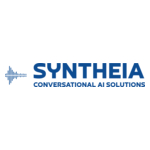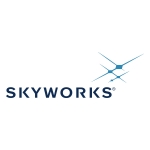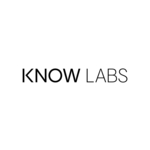The biggest expansion of models to date, new inference optimization tools, and additional data capabilities give customers even greater flexibility and control to build and deploy production-ready generative AI faster
Amazon Bedrock Empowers Customers to Accelerate Generative AI Adoption with More Than 100 New Models and Powerful New Capabilities for Inference and Working with Data
Amazon.com, Inc.
Media Hotline
Amazon-pr@amazon.com
www.amazon.com/pr
At AWS re:Invent, Amazon Web Services, Inc. (AWS), an Amazon.com, Inc. company (NASDAQ: AMZN), today announced new innovations for Amazon Bedrock, a fully managed service for building and scaling generative artificial intelligence (AI) applications with high-performing foundation models. Today’s announcements reinforce AWS’s commitment to model choice, optimize how inference is done at scale, and help customers get more from their data.
This press release features multimedia. View the full release here: https://www.businesswire.com/news/home/20241204780931/en/

Discover Amazon Bedrock Marketplace models and Amazon Bedrock fully managed models in the new model catalog (Graphic: Business Wire)
- AWS will soon be the first cloud provider to offer models from Luma AI and poolside. AWS will also add the latest Stability AI model in Amazon Bedrock and, through the new Amazon Bedrock Marketplace capability, is giving access to more than 100 popular, emerging, and specialized models, so customers can find the right set of models for their use case.
- New prompt caching and Amazon Bedrock Intelligent Prompt Routing help customers more easily and cost effectively scale inference.
- Support for structured data and GraphRAG in Amazon Bedrock Knowledge Bases further expands how customers can leverage their data to deliver customized generative AI experiences.
- Amazon Bedrock Data Automation automatically transforms unstructured, multimodal data into structured data with no coding required—helping customers use more of their data for generative AI and analytics.
- Tens of thousands of customers trust Amazon Bedrock to run their generative AI applications as the service has grown its customer base by 4.7x in the last year. Adobe, Argo Labs, BMW Group, Octus, Symbeo, Tenovos, and Zendesk are already adopting the latest Amazon Bedrock advancements.
“Amazon Bedrock continues to see rapid growth as customers flock to the service for its broad selection of leading models, tools to easily customize with their data, built-in responsible AI features, and capabilities for developing sophisticated agents,” said Dr. Swami Sivasubramanian, vice president of AI and Data at AWS. “Amazon Bedrock is helping to tackle the biggest roadblocks developers face today, so customers can realize the full potential of generative AI. With this new set of capabilities, we are empowering customers to develop more intelligent AI applications that will deliver greater value to their end users.”
The broadest selection of models from leading AI companies
Amazon Bedrock provides customers with the broadest selection of fully managed models from leading AI companies, including AI21 Labs, Anthropic, Cohere, Meta, Mistral AI, and Stability AI. Additionally, Amazon Bedrock is the only place customers can access the newly announced Amazon Nova models, a new generation of foundation models that deliver state-of-the-art intelligence across a wide range of tasks and industry-leading price performance. With today’s announcements, AWS is further expanding model choice in Amazon Bedrock with the addition of more industry-leading models.
- Luma AI’s Ray 2: Luma AI’s multimodal models and software products advance video content creation with generative AI. AWS will be the first cloud provider to make Luma AI’s state-of-the-art Luma Ray 2 model, the second generation of its renowned video model, available to customers. Ray 2 marks a significant advancement in generative AI-assisted video creation, generating high-quality, realistic videos from text and images with efficiency and cinematographic quality. Customers can rapidly experiment with different camera angles and styles, create videos with consistent characters and accurate physics, and deliver creative outputs for architecture, fashion, film, graphic design, and music.
- poolside’s malibu and point: poolside addresses the challenges of modern software engineering for large enterprises. AWS will be the first cloud provider to offer access to poolside’s malibu and point models, which excel at code generation, testing, documentation, and real-time code completion. This empowers engineering teams to improve productivity, write better code faster, and accelerate product development cycles. Both models can also be fine-tuned securely and privately on customers’ codebases, practices, and documentation, enabling them to adapt to specific projects and helping customers tackle daily software engineering tasks with increased accuracy and efficiency. Additionally, AWS will be the first cloud provider to offer access to poolside’s Assistant, which puts the power of poolside’s malibu and point models inside of developers' preferred integrated development environments (IDEs).
- Stability AI’s Stable Diffusion 3.5 Large: Stability AI is a leading generative AI model developer in visual media, with cutting-edge models in image, video, 3D, and audio. Amazon Bedrock will soon add Stable Diffusion 3.5 Large, Stability AI’s most advanced text-to-image model. This new model generates high-quality images from text descriptions in a wide range of styles to accelerate the creation of concept art, visual effects, and detailed product imagery for customers in media, gaming, advertising, and retail.
Access more than 100 popular, emerging, and specialized models with Amazon Bedrock Marketplace
While the models in Amazon Bedrock can support a wide range of tasks, many customers want to incorporate emerging and specialized models into their applications to power unique use cases, like analyzing a financial document or generating novel proteins. With Amazon Bedrock Marketplace, customers can now easily find and choose from more than 100 models that can be deployed on AWS and accessed through a unified experience in Amazon Bedrock. This includes popular models such as Mistral AI’s Mistral NeMo Instruct 2407, Technology Innovation Institute’s Falcon RW 1B, and NVIDIA NIM microservices, along with a wide array of specialized models, including Writer’s Palmyra-Fin for the financial industry, Upstage’s Solar Pro for translation, Camb.ai’s text-to-audio MARS6, and EvolutionaryScale’s ESM3 generative model for biology.
Once a customer finds a model they want, they select the appropriate infrastructure for their scaling needs and easily deploy on AWS through fully managed endpoints. Customers can then securely integrate the model with Amazon Bedrock’s unified application programming interfaces (APIs), leverage tools like Guardrails and Agents, and benefit from built-in security and privacy features.
Zendesk is a global service software company with a diverse and multicultural customer base of 100,000 brands around the world. The company can use specialized models, like Widn.AI for translation, in Amazon Bedrock to personalize and localize customer service requests across email, chat, phone, and social media. This will provide agents with the data they need, such as sentiment or intent in the customer’s native language, to ultimately enhance the customer service experience.
Prompt caching and Intelligent Prompt Routing help customers tackle inference at scale
When selecting a model, developers need to balance multiple considerations, like accuracy, cost, and latency. Optimizing for any one of these factors can mean compromising on the others. To balance these considerations when deploying an application into production, customers employ a variety of techniques, like caching frequently used prompts or routing simple questions to smaller models. However, using these techniques is complex and time-consuming, requiring specialized expertise to iteratively test different approaches to ensure a good experience for end users. That is why AWS is adding two new capabilities to help customers more effectively manage prompts at scale.
- Lower response latency and costs by caching prompts: Amazon Bedrock can now securely cache prompts to reduce repeated processing, without compromising on accuracy. This can reduce costs by up to 90% and latency by up to 85% for supported models. For example, a law firm could create a generative AI chat application that can answer lawyers’ questions about documents. When multiple lawyers ask questions about the same part of a document in their prompts, Amazon Bedrock could cache that section, so the section only gets processed once and can be reused each time someone wants to ask a question about it. This reduces the cost by shrinking the amount of information the model needs to process each time. Adobe’s Acrobat AI Assistant enhances user productivity by enabling quick document summarization and question answering. With prompt caching on Amazon Bedrock, Adobe observed a 72% reduction in response time, based on preliminary testing.
- Intelligent Prompt Routing helps optimize response quality and cost: With Intelligent Prompt Routing, customers can configure Amazon Bedrock to automatically route prompts to different foundation models within a model family, helping them optimize for response quality and cost. Using advanced prompt matching and model understanding techniques, Intelligent Prompt Routing predicts the performance of each model for each request and dynamically routes requests to the model most likely to give the desired response at the lowest cost. Intelligent Prompt Routing can reduce costs by up to 30% without compromising on accuracy. Argo Labs, which delivers innovative voice agent solutions for restaurants, handles diverse customer inquiries and reservations with Intelligent Prompt Routing. As customers submit questions, place orders, and book tables, Argo Labs’ voice chatbot dynamically routes the query to the most suitable model, optimizing for both cost and quality of responses. For example, a simple yes-no question, like “Do you have an open table at this restaurant tonight?” could be handled by a smaller model, while a larger model could answer more complex questions such as, “What kind of vegan options does this restaurant provide?” With Intelligent Prompt Routing, Argo Labs can use their voice agents to seamlessly handle customer interactions, while achieving the right balance of accuracy and cost.
Two new capabilities for Amazon Bedrock Knowledge Bases help customers maximize the value of their data
Customers want to leverage their data, no matter where, or in what format, it resides to build unique generative AI-powered experiences for end users. Knowledge Bases is a fully managed capability that makes it easy for customers to customize foundation model responses with contextual and relevant data using retrieval augmented generation (RAG). While Knowledge Bases already makes it easy to connect to data sources like Amazon OpenSearch Serverless and Amazon Aurora, many customers have other data sources and data types they would like to incorporate into their generative AI applications. That is why AWS is adding two new capabilities to Knowledge Bases.
- Support for structured data retrieval accelerates generative AI app development: Knowledge Bases provides one of the first managed, out-of-the-box RAG solutions that enables customers to natively query their structured data where it resides for their generative AI applications. This capability helps break data silos across data sources, accelerating generative AI development from over a month to just days. Customers can build applications that use natural language queries to explore structured data stored in sources like Amazon SageMaker Lakehouse, Amazon S3 data lakes, and Amazon Redshift. With this new capability, prompts are translated into SQL queries to retrieve data results. Knowledge Bases automatically adjusts to a customer’s schema and data, learns from query patterns, and provides a range of customization options to further enhance the accuracy of their chosen use case. Octus, a credit intelligence company, will use the new structured data retrieval capability in Knowledge Bases to allow end users to query structured data using natural language. By connecting Knowledge Bases to Octus’ existing master data management system, end-user prompts can be translated into SQL queries that Amazon Bedrock uses to retrieve the relevant information and return it to the user as part of the application’s response. This will help Octus’ chatbots deliver precise, data-driven insights to its users and enhance the users’ interactions with the company’s array of data products.
- Support for GraphRAG generates more relevant responses: Knowledge graphs allow customers to model and store relationships between data by mapping different pieces of relevant information like a web. These knowledge graphs can be particularly useful when incorporated into RAG, allowing a system to easily traverse and retrieve relevant parts of information by following the graph. Now, with support for GraphRAG, Knowledge Bases can enable customers to automatically generate graphs using Amazon Neptune, AWS’s managed graph database, and link relationships between entities across data, without requiring any graph expertise. Knowledge Bases makes it easier to generate more accurate and relevant responses, identify related connections using the knowledge graph, and view the source information to understand how a model arrived at a specific response. BMW Group will implement GraphRAG for My AI Assistant (MAIA), an AI-powered virtual assistant that helps users find, understand, and integrate the company’s internal data assets hosted on AWS. With GraphRAG’s automated graph modeling powered by Amazon Neptune, BMW will be able to continuously update the knowledge graph powering MAIA based on data usage to provide more relevant and comprehensive insights from its data assets to continue creating premium experiences for millions of drivers.
Amazon Bedrock Data Automation transforms unstructured multimodal data into structured data for generative AI and analytics
Today, most enterprise data is unstructured and is contained in content like documents, videos, images, and audio files. Many customers want to take advantage of this data to discover insights or build new experiences for customers, but it is often a difficult, manual process to convert it into a format that can be easily used for analytics or RAG. For example, a bank may take in multiple PDF documents for loan processing and need to extract details from each one, normalize features like name or date of birth for consistency, and transform the results into a text-based format before entering them into a data warehouse to perform any analyses. With Amazon Bedrock Data Automation, customers can automatically extract, transform, and generate data from unstructured content at scale using a single API.
Amazon Bedrock Data Automation can quickly and cost effectively extract information from documents, images, audio, and videos and transform it into structured formats for use cases like intelligent document processing, video analysis, and RAG. Amazon Bedrock Data Automation can generate content using predefined defaults, like scene-by-scene descriptions of video stills or audio transcripts, or customers can create an output based on their own data schema that they can then easily load into an existing database or data warehouse. Through an integration with Knowledge Bases, Amazon Bedrock Data Automation can also be used to parse content for RAG applications, improving the accuracy and relevancy of results by including information embedded in both images and text. Amazon Bedrock Data Automation provides customers with a confidence score and grounds its responses in the original content, helping to mitigate the risk of hallucinations and increasing transparency.
Symbeo is a CorVel company that offers automated accounts payable solutions. The company will use Amazon Bedrock Data Automation to automate the extraction of data from complex documents, such as insurance claims, medical bills, and more. This will help Symbeo’s teams process claims faster and accelerate the turnaround time to get back to their customers. Tenovos, a digital asset management platform, is using Amazon Bedrock Data Automation to enable semantic search at scale to increase content reuse by 50% or more, saving millions in marketing expenses.
Amazon Bedrock Marketplace is available today. Inference management capabilities, structured data retrieval and GraphRAG in Amazon Bedrock Knowledge Bases, and Amazon Bedrock Data Automation are all available in preview. Models from Luma AI, poolside, and Stability AI are coming soon.
To learn more, visit:
- The AWS News Blog for details on today’s announcements: Amazon Bedrock Marketplace, prompt caching and Intelligent Prompt Routing, and data processing and retrieval capabilities.
- The Amazon Bedrock page to learn more about the capabilities.
- The Amazon Bedrock customer page to learn how companies are using Amazon Bedrock.
- The AWS re:Invent page for more details on everything happening at AWS re:Invent.
About Amazon Web Services
Since 2006, Amazon Web Services has been the world’s most comprehensive and broadly adopted cloud. AWS has been continually expanding its services to support virtually any workload, and it now has more than 240 fully featured services for compute, storage, databases, networking, analytics, machine learning and artificial intelligence (AI), Internet of Things (IoT), mobile, security, hybrid, media, and application development, deployment, and management from 108 Availability Zones within 34 geographic regions, with announced plans for 18 more Availability Zones and six more AWS Regions in Mexico, New Zealand, the Kingdom of Saudi Arabia, Taiwan, Thailand, and the AWS European Sovereign Cloud. Millions of customers—including the fastest-growing startups, largest enterprises, and leading government agencies—trust AWS to power their infrastructure, become more agile, and lower costs. To learn more about AWS, visit aws.amazon.com.
About Amazon
Amazon is guided by four principles: customer obsession rather than competitor focus, passion for invention, commitment to operational excellence, and long-term thinking. Amazon strives to be Earth’s Most Customer-Centric Company, Earth’s Best Employer, and Earth’s Safest Place to Work. Customer reviews, 1-Click shopping, personalized recommendations, Prime, Fulfillment by Amazon, AWS, Kindle Direct Publishing, Kindle, Career Choice, Fire tablets, Fire TV, Amazon Echo, Alexa, Just Walk Out technology, Amazon Studios, and The Climate Pledge are some of the things pioneered by Amazon. For more information, visit amazon.com/about and follow @AmazonNews.
View source version on businesswire.com: https://www.businesswire.com/news/home/20241204780931/en/

 Business wire
Business wire 












Add Comment